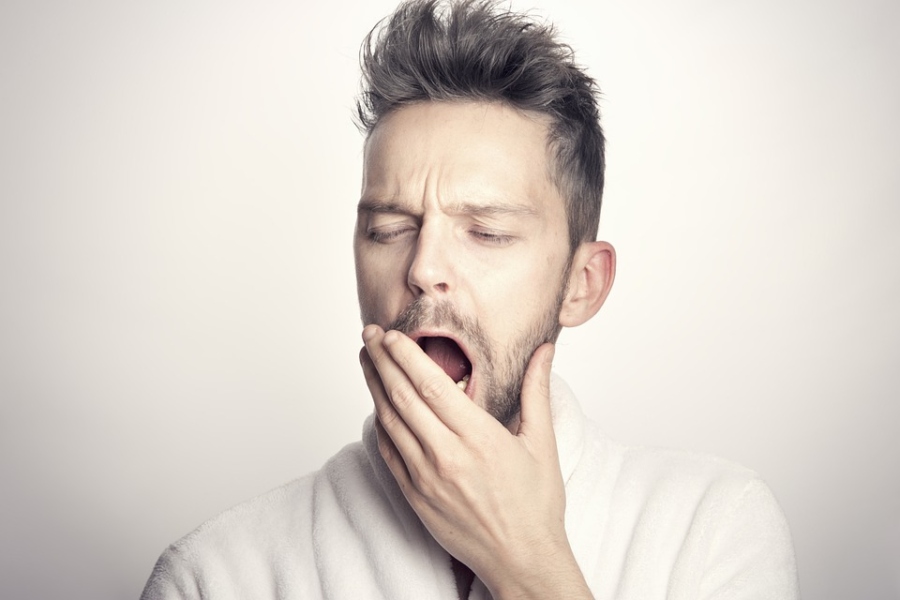Over the years, it has become more evident that most adults do not get as much sleep as they should. About 30% of the general population fall victim to regular sleep disruption, which contributes to insomnia. Insomnia affects your mood and saps your energy, and this can put both your work performance and overall health in a downward spiral.
In addition to insomnia, factors such as family responsibilities, work stress, and unexpected illnesses all interfere with a good night’s sleep, making quality sleep elusive. Even though it may be difficult to control all the factors that interfere with your sleep, it is possible you adopt habits that can help you sleep better. Outlined below are some suggestions that will encourage better sleep.
What Can You Do To Beat Insomnia and Sleep Better
1- Wake Up At The Same Time Each Day
If you have been sleeping poorly during the week, it can be tempting to sleep in over the weekend. However, in order to train your body to wake at a consistent time, you should ensure you get up at the same time every day, especially if you have insomnia.
2- Avoid Taking Stimulants and Alcohol Before Bed
Stimulants such as nicotine and caffeine have effects that last for several hours, which significantly affect sleep. These stimulants will not only make it difficult to initiate sleep but will also frequently disrupt your sleep.
Alcohol may act as a sedative for the first few hours after consumption but eventually lead to a restless night. In case you are on medication that might serve as a stimulant, consult with your doctor to know when you should take them to minimize their effect on your sleep.
3- Resist Naps
Although taking a nap might seem like a way to catch up on much-needed sleep, it is essential to establish and maintain a regular sleep pattern. Taking naps during the day will end up affecting the quality of your nighttime sleep.
4- Exercise Regularly
Exercising regularly will improve sleep duration and quality. However, it would be best to try exercising at least 3 hours before you go to bed since exercising stimulates your body.
5- Limit Activities in Bed

Reserve your bed for sleeping. Activities such as studying, making phone calls, going through your bills, and others will only increase your alertness and make it almost impossible for you to fall asleep.
6- Avoid Drinking or Eating Right Prior to Going to Bed
Snacking or having a late dinner before you go to bed will activate your digestive system, and this will keep you up for hours. If you often suffer from heartburn or GERD (gastroesophageal reflux), it is important to avoid food and drinks before bed to avoid making your symptoms worse. Additionally, taking a lot of fluids before bed might overwhelm your bladder, which means that you will make frequent trips to the washroom that will disturb your sleep.
7- Ensure Your Sleeping Environment Feels Comfortable
Noise, lighting, and temperature are some of the elements you should control to make your bedroom more conducive for falling and staying asleep all through the night. Making sure that your room is noise-free and feels comfortable will promote better sleep. In addition, you should limit your screen time prior to going to bed.
8- Clear Your Mind
Most people find themselves lying in bed worrying about the next day and the things they have to do. If you face similar problems, you should consider setting aside time to review your day and organize a schedule for the next day before going to bed.
It is important to avoid doing these things when you are trying to fall asleep. Eliminating your concerns for the next day, errands you need to run, and things you need to tend to before you go to bed will help ease your mind, thus facilitating better sleep. Making a list of your tasks might also prove helpful.
9- Participate in Cognitive Therapy
For most people with insomnia, cognitive therapy helps identify and correct inappropriate beliefs and thoughts that may cause or contribute to their insomnia. Additionally, cognitive therapy gives you accurate information on sleep norms and age-related sleep changes that will help you set better sleep goals.
10- Steer Clear of Blue-light
Avoid using any devices such as your phone and laptop or watching TV in bed. The blue-light emitted by these devices can negatively influence your ability to fall asleep.
Bluelight is responsible for blocking melatonin, the hormone that helps make you feel sleepy. When you stay on the phone while in bed, it will take you longer to fall asleep as you will feel less drowsy and more alert.
11- Create a Calming and Effective Bedtime Routine
A bedtime routine includes a series of activities that one performs in order to help the body relax and ready for bed. These activities help you fall asleep faster and ascertain a healthy sleep pattern.
Bedtime routines can be helpful in dealing with irregular sleep schedules. You can begin your bedtime routine 30 to 40 minutes before going to bed by engaging in calming activities such as reading a book, taking a warm shower, meditating, journalizing, or doing some stretches.
12- Do Not Toss and Turn
If you go to bed and still struggle to fall asleep after more than 20 minutes, get out of bed to go do something relaxing like reading then return to bed when you feel more relaxed and worn out.
Your mental wellbeing might be the reason behind your restlessness, you should therefore get up and try to find something relaxing to do.
Find What Works For You
Although most people suffer from occasional sleep deprivation, chronic sleep disorders such as insomnia can be more severe if not controlled. Insomnia often contributes to memory problems, difficulty concentrating and can even increase the risks of accidents.
If you cannot sleep well even after adopting practices that should help you sleep better, you should consider seeing a doctor. Getting quality sleep enhances your performance and improves your health; therefore it is vital to ensure that you get enough sleep every night.







Recent Comments